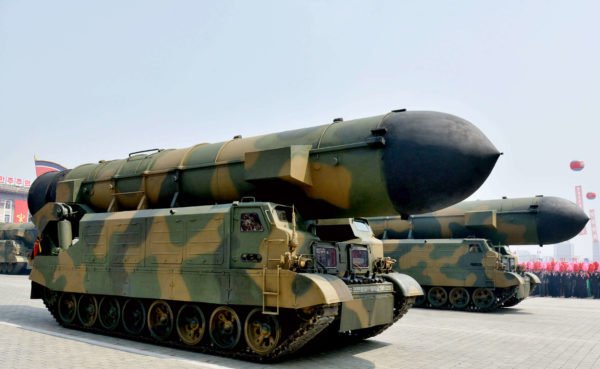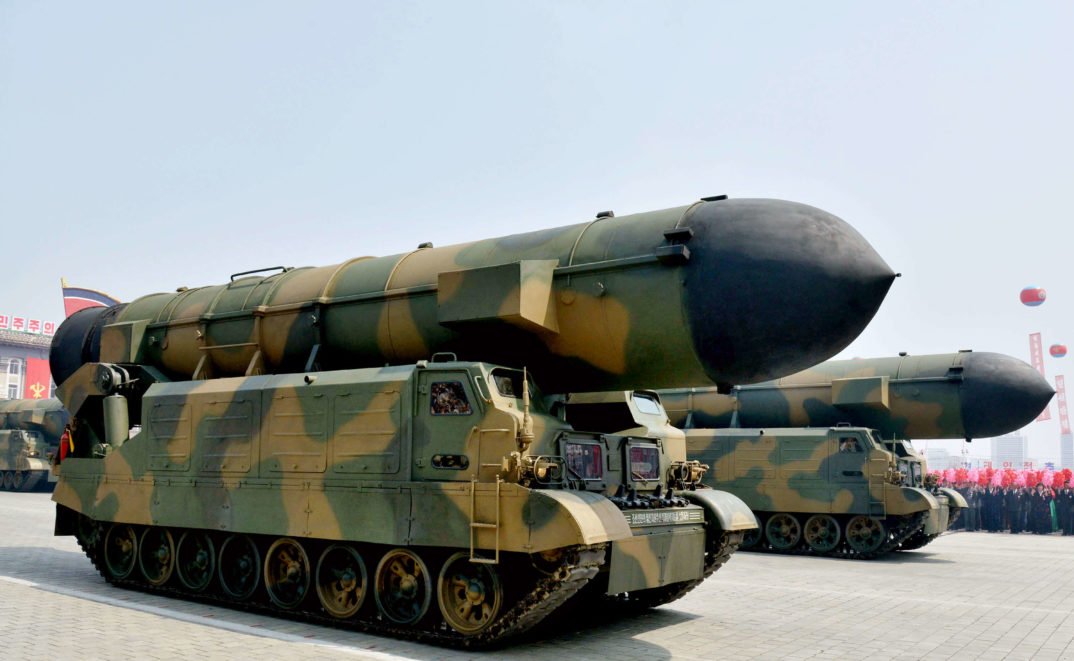North Korea has fired a new ballistic missile over Japan, creating new tension in the region after its nuclear bomb test less than two weeks ago.
According to South Korean military, the missile reached an altitude of about 770km (478 miles), travelling 3,700km before landing in the sea off Hokkaido.
The missile flew higher and further than one fired over Japan late last month.
Japan’s PM Shinzo Abe said his country would “never tolerate” such “dangerous provocative action”.
South Korea responded within minutes by firing two ballistic missiles into the sea in a simulated strike on North Korea.
Secretary of State Rex Tillerson also condemned the launch and the UN Security Council will meet later on September 15 in New York at the request of America and Japan.
The launch took place from the Sunan airfield north of Pyongyang just before 07:00 local time, South Korea’s military says.

North Korea Fires Missile over Northern Japan
North Korea Launches Fiery Attack on US Following UN Sanctions
North Korea Crisis: Kim Jong-un Is Begging for War, Says US Ambassador to UN
As with the last test on 29 August, the missile flew over Japan’s northern Hokkaido island before splashing down in the Pacific Ocean. There were no immediate reports of damage to aircraft or ships.
Sirens sounded across the region and text message alerts were sent out warning people to take cover.
According to observers, it is likely to have been an intermediate range ballistic missile (IRBM) though Japanese officials believe there is still a possibility it was an intercontinental ballistic missile (ICBM).
What is so alarming about the new launch is that the US Pacific territory of Guam, which North Korea says it has plans to fire missiles towards, is 3,400km from Pyongyang, putting it within range of the latest missile.
Sanctions on North Korea were tightened this week in response to its sixth nuclear test on 3 September, which reportedly involved a miniaturized hydrogen bomb that could be loaded on to a long-range missile.
After the latest round of sanctions, it is not clear what other course of action is open to the UN Security Council.
Only on September 11, the UN Security Council voted to restrict oil imports and ban textile exports, in an attempt to starve North Korea of fuel and income for its weapons programs.
